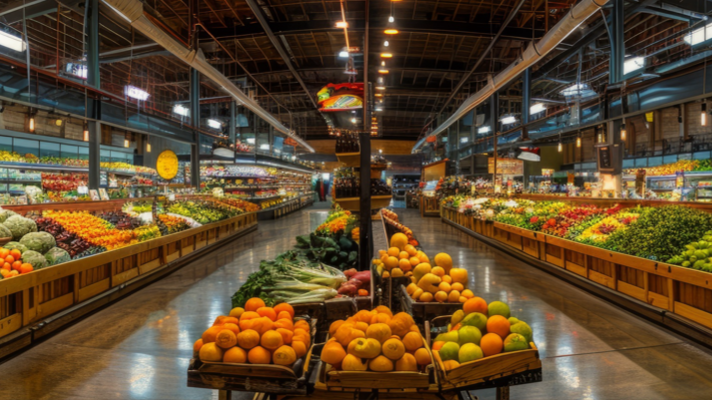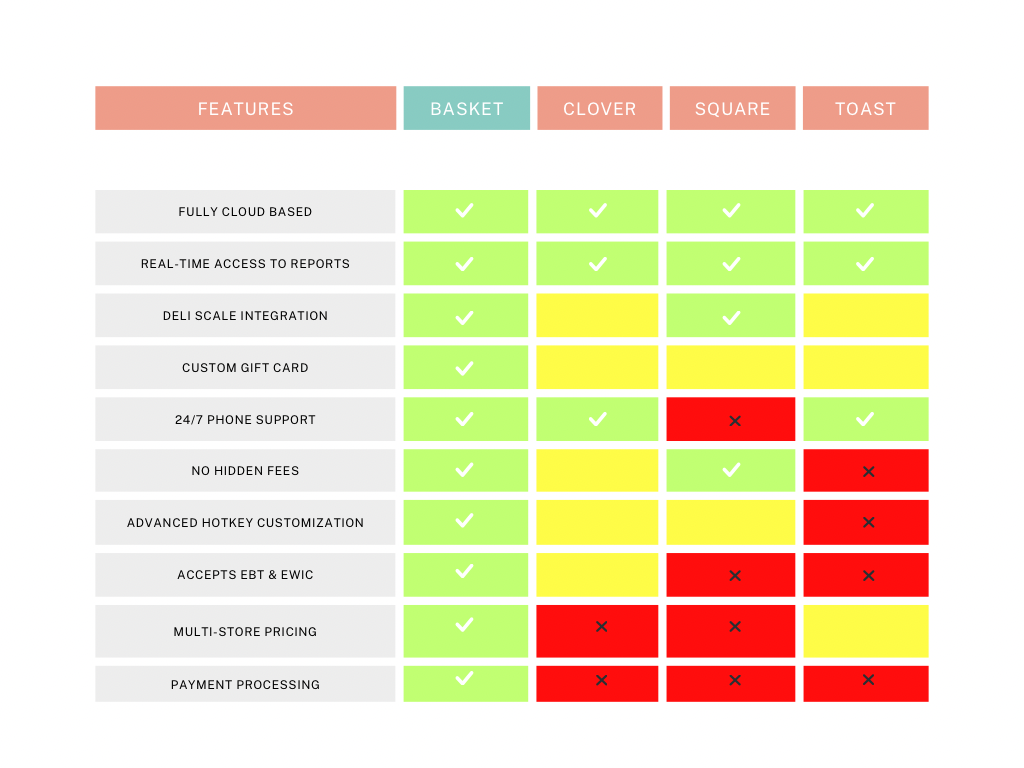Why Choosing the Best POS System Matters
Imagine the chaos in a busy retail store during peak shopping hours—long checkout lines, frustrated customers, and staff scrambling to keep up. The root of the problem? An unreliable point of sale (POS) system. In the retail industry, the right POS system isn’t just a convenience; it’s essential. It ensures smooth transactions, accurate inventory management, and ultimately, customer satisfaction.
Choosing the right POS system is a critical decision that can significantly impact your retail business. By focusing on key features such as cloud-based functionality, real-time reporting, advanced inventory management, and comprehensive customer support, you can ensure that your POS system not only meets your current needs but also supports your business as it grows. This guide will help you navigate these essential features to find the best POS system for your retail operations.


Key Features for Choosing a POS Systems
Cloud-Based POS Systems: Flexibility and Accessibility
A cloud-based POS system offers unmatched flexibility and accessibility. This feature allows retailers to manage their operations from anywhere, whether it’s monitoring sales from home or adjusting inventory on the go. Cloud-based solutions ensure that data is synchronized across all locations, making them ideal for multi-store operations or businesses with mobile sales teams.
Real-Time Reporting: Staying Ahead with Data
Real-time reporting is a critical feature for any retail POS system. It provides up-to-the-minute data that helps retailers make informed decisions about inventory, staffing, and promotions. By accessing real-time data, businesses can monitor sales trends, track employee performance, and quickly address any operational issues, leading to improved efficiency and profitability.
Advanced Inventory Management: Keeping Your Shelves Stocked
Effective inventory management is essential for retail success. Advanced inventory management features in POS systems help retailers maintain accurate stock levels, reduce shrinkage, and streamline the reordering process. This capability ensures that popular items are always in stock and that slow-moving products are managed efficiently, allowing businesses to focus on customer service.
Scanner Scale Integrations: Accuracy at Checkout
For retailers, especially those in grocery or bulk sales, scanner scale integrations are crucial. These systems ensure that products sold by weight are accurately priced, reducing errors and improving checkout speed. Scanner scale integration is essential for maintaining accuracy and efficiency in high-volume retail environments.
Deli Scale Integration: Precision for Grocery Retailers
Grocery stores, particularly in the deli section, require deli scale integration. This feature ensures that items sold by weight are processed correctly, providing transparency and confidence to customers. Deli scale integration simplifies the checkout process and minimizes errors, leading to a better customer experience.
Custom Gift Cards: Building Customer Loyalty
Custom gift cards are a powerful tool for increasing customer loyalty and driving repeat business. POS systems that support custom gift cards make it easy for retailers to issue and track these cards, creating additional revenue streams and keeping customers engaged, especially during holiday seasons or special promotions.
24/7 Customer Support: Ensuring Operational Continuity
Retailers cannot afford downtime, particularly during peak shopping periods. Therefore, 24/7 customer support is a critical feature in a POS system. Round-the-clock support ensures that technical issues are resolved promptly, minimizing disruptions and keeping your store running smoothly.
Transparent Pricing: Avoiding Hidden Costs
Transparent pricing is vital when selecting a POS system. Retailers should choose systems with clear pricing models that avoid hidden fees, which can erode profits. A POS system with straightforward, transparent pricing helps businesses manage their budgets effectively and avoid unexpected costs.
Advanced Hotkey Customization: Speeding Up Transactions
In high-volume retail environments, advanced hotkey customization can significantly speed up transactions. This feature allows employees to quickly access frequently used functions or products, reducing checkout times and improving overall efficiency. Hotkey customization is particularly beneficial for retailers with large inventories or complex pricing structures.
EBT and EWIC Support: Serving All Customers
For retailers serving a diverse customer base, EBT and EWIC support is essential. POS systems that accept Electronic Benefits Transfer (EBT) and Women, Infants, and Children (EWIC) payments ensure that all customers can complete their purchases seamlessly. This feature not only expands your customer base but also demonstrates a commitment to accessibility and inclusivity.
Multi-Store Pricing Management: Consistency Across Locations
For retailers with multiple locations, multi-store pricing management is crucial for maintaining consistency. This feature allows businesses to centrally manage and update pricing across all stores, ensuring uniform pricing and simplifying promotions. It also makes it easier to respond to market trends and manage pricing strategies.
Mobile App Access: Analyzing Performance on the Go
In today’s mobile world, having a mobile app that provides access to POS data is invaluable. Retailers can monitor sales, track inventory, and review analytics from their smartphones, giving them the flexibility to manage their business from anywhere. This feature is particularly useful for business owners who are frequently on the move or manage multiple locations.
Payment Processing Fees: Managing Transaction Costs
Understanding and managing payment processing fees is crucial when selecting a POS system. These fees can significantly impact your overall expenses, as they are typically charged per transaction and can vary based on the payment method. Transparent pricing for payment processing helps retailers avoid unexpected costs and effectively manage their budget. Look for POS systems that offer clear and competitive processing fee structures, ensuring you know exactly what you’ll pay for each transaction and can plan your financials accordingly.
Conclusion
Selecting the ideal grocery point of sale system is crucial for streamlining operations, enhancing customer satisfaction, and staying ahead of the competition. By thoroughly assessing your store’s needs and taking into account the key features outlined, you can choose a system that fits your current demands and scales with your business as it grows. With many POS options available, it’s wise to explore demos of different systems before making a decision. Learn more about our POS solution here: Basket Point of Sale